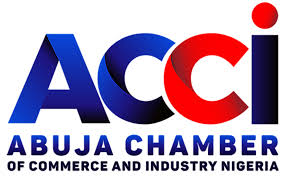Ms. Tinuade Awe, the CEO of NGX Regulation Limited (NGX RegCo), has underscored the vital importance of companies incorporating Environmental, Social, and Governance (ESG) considerations into their overarching business strategies.
Speaking at the Africa Social Impact Summit 2023, hosted by Sterling One Foundation and the United Nations Nigeria, Awe urged businesses to align their ESG reporting with their core business objectives, data management practices, and governance policies.
The event’s roundtable discussion, themed : ‘ESG Activity Reporting and Sustainable Investing,’ provided a platform for Awe to elaborate on the significance of ESG integration. She explained that companies embarking on ESG reporting must establish a well-defined ESG strategy that resonates with their business goals. Seeking expert guidance and adopting a systematic approach to monitoring ESG-related data were highlighted as key factors to ensure accurate reporting.
According to Awe, this proactive approach is instrumental in driving the prompt adoption of ESG reporting practices within companies listed on NGX. Businesses that seamlessly integrate ESG reporting into their operational framework, she noted, not only bolster their standing as responsible corporate citizens but also enhance their ability to mitigate operational risks, attract sustainable investors, and generate long-term value.
The NGX CEO pointed out that approximately 50% of the companies listed on the exchange have already taken significant steps by fully integrating sustainability reporting into their annual reports or by releasing dedicated standalone reports. Awe further emphasized that embracing ESG reporting is a pivotal move that could significantly elevate Nigeria’s global reputation in terms of ESG performance, while also aligning with the nation’s aspiration of achieving carbon neutrality by 2060.
Awe also highlighted the existing sustainability disclosure guidelines introduced by NGX in 2019. She revealed that these guidelines are undergoing a review to align with the evolving International Sustainability Standards Board (ISSB) Standards, as well as to keep pace with the evolving global ESG landscape.
In light of the rapidly changing ESG landscape, Awe stressed the importance of fostering a strong partnership between public and private sector stakeholders in Nigeria. This collaborative effort, she asserted, would enable both sectors to jointly assume their shared responsibility in shaping a sustainable future.
Furthermore, Awe highlighted how ESG reporting not only raises awareness of worldwide trends in climate-related reporting but also aligns with established guidance frameworks such as the Task Force on Climate-related Financial Disclosures (TCFD) recommendations and the recently introduced International Sustainability Standards Board (ISSB) S1 and S2 standards.
As businesses increasingly recognise the significance of ESG considerations, Ms. Tinuade Awe’s call to integrate these factors into core business strategies resonates as a transformative step towards a more sustainable and responsible corporate landscape.





